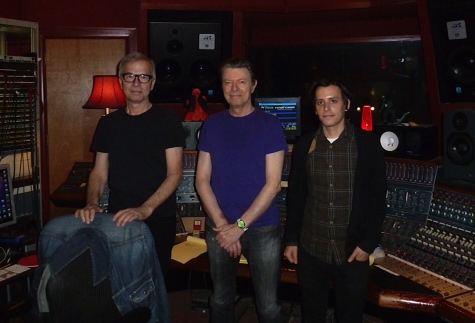
The creating of music in real recording studio facilities in Manhattan received a chilling blow yesterday with the news in The New York Times that The Magic Shop will close on March 16. It’s where David Bowie secretly recorded his final album, Blackstar, and was featured in the HBO series Sonic Highways. Its large main tracking room and vintage recording gear have been prized by artists like Lou Reed, Arcade Fire, Sonic Youth and others for the warmth and richness they brought to album projects. The Magic Shop has also earned esteem in the music industry and among preservationists for its restoration of archival recordings by The Rolling Stones, Elvis Presley, Woody Guthrie and others.
A Times article last October detailed the studio’s dispute with the owner of its building on Crosby St. in the SoHo neighborhood, where it has operated since 1988. It’s not the first such top studio to close its doors due to ever-increasing pressure over the high-price of Manhattan real estate at a time when digital technology allows albums to be made on a laptop.
On the studio’s Facebook page, owner Steve Rosenthal wrote:
“Everyone knows why I have to close, so there is little point in rehashing my story. My eternal thanks goes to Dave Grohl, The Foo Fighters and Lee Johnson for stepping up big time last year to try and save the studio from this fate. I would also like to thank the late, great David Bowie for recording Blackstar and the Next Day at the studio. It was an honor to have him and Tony Visconti working here for the last few years.
As the city becomes more of a corporate and condo island, some of us wish for a better balance between money and art, between progress and preservation, and we hope that one day we will see a reversal of the destruction of conscience and community we are witnessing.”
The Hit Factory on West 54th St. opened in 1975 with the recording of Stevie Wonder’s Songs in the Key of Life and was used by such superstar classic rockers as John Lennon (he was returning from a session there the night he was shot), The Rolling Stones, Bruce Springsteen and U2 until it closed in 2005. Its space is now a penthouse apartment priced at more than $5 million a few years ago (and previously rented by former Saturday Night Live/30 Rock star Tracy Morgan and New York Knicks player Carmelo Anthony).
Foo Fighter Dave Grohl – who both made a documentary film about and preserved the gear of the Los Angeles Sound City studio where Nirvana made its Nevermind album – pitched in with financial support to help The Magic Shop in its landlord dispute and possibly buy the space it occupied. “We thought, wouldn’t it be great if this studio was around for the next rock band that is going to change the world?” he told the Times. “Because this is the kind of place where it’s going to happen, not on some TV contest.”

